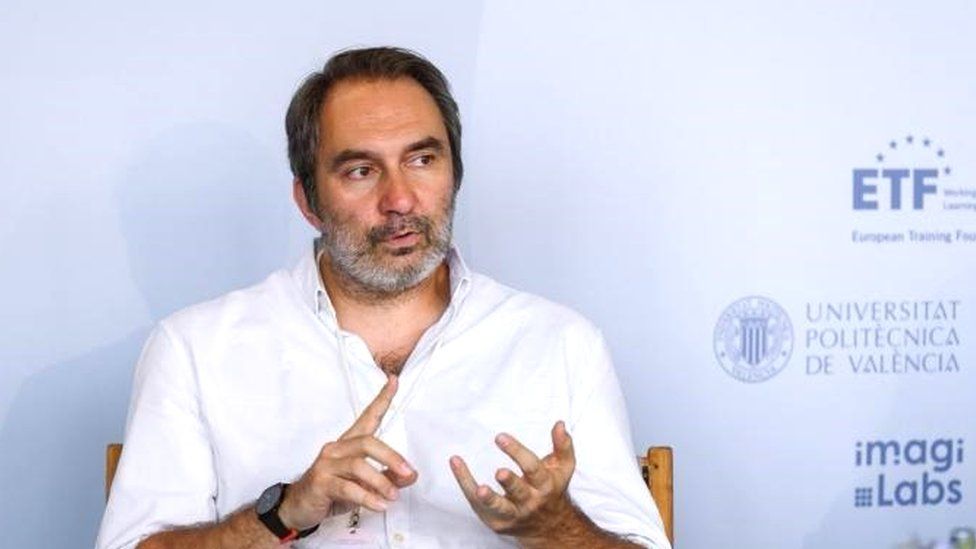
“What has happened in the Portuguese technology sector since 2010 was something spectacular”, says Ricardo Marvão, director of the Portuguese innovation consultancy firm Beta-i.
“Portugal became enormously competitive in the international market. Several foreign founders started considering Portugal as their future home. They brought know-how, created innovation centres, invested in the local industry, built co-working spaces,” he explains.
As well as the long sunny coastline, overseas tech workers and entrepreneurs have been attracted to Portugal by generous tax policies.
Under the non-habitual resident (NHR) statute, foreign individuals pay a fixed 20% rate on their income for a 10-year period. By comparison, for locals, income tax rates range from 15% to 48%.
In parallel were the so-called golden visas, through which a foreigner could trade an investment for a Portuguese passport. Together the programmes helped attract thousands of professionals and retirees to the country.
According to data from the country’s court of auditors, 74,258 individuals were living in Portugal under this regime in 2022, a 28% increase from a year before.
But after a decade of rapid growth, the success might be at an inflexion point.

In October, the Portuguese government announced it will scrap the favourable tax regime from 2024 for new entrants. Those who already benefit from it won’t be affected and will be able to keep the 20% rate on their income until the end of their 10-year period.
The Portuguese authorities intend to replace it with a much more targeted programme, focused on attracting overseas scientists and researchers. Final details are still not known.
After the government’s announcement, Ricardo Marvão’s phone was buzzing with alerts from friends and acquaintances who had benefited from the tax scheme and were worried about the future.
“There was a lot of distrust towards the government. They guaranteed nothing would change for those who are already under the statute, but many nevertheless feared a full reversal,” he tells the BBC.
Mr Marvão says the programme has been essential for the attraction of very qualified individuals who wouldn’t otherwise have an incentive to move to Portugal and establish themselves in the country.
“The NHR regime and the tech boom in Portugal made talent attraction possible. Fast-growing start-ups needed experienced professionals, since know-how in Portugal was scarce or non-existent at the ecosystem’s beginnings,” Mr Marvão says.
However, the government has blamed such schemes for soaring housing prices. Lisbon and other cities have seen major protests over high rents and property prices.

Portuguese tax expert Rita de La Feria, professor at the University of Leeds, told the BBC she agrees with the Portuguese government’s decision.
She says these kind of tax benefits tend to escalate, as countries compete to attract in-demand workers. Plus, they come at the cost of depleted tax revenue and strained public services, and thwart efforts to promote European cohesion.
Ms de La Feria also doubts how much credit the attractive tax regime should receive for attracting workers to Portugal.
“That was probably the equation the government must have done internally: does Portugal still need the NHR regime to attract professionals? Or will Portugal be able to attract them nevertheless thanks to the country’s other competitive advantages?,” she asks.

One tech worker I spoke to, who did not want to be named due to the controversy surrounding NHR, thinks the tax break should be ended.
“If you look at the whole of Portugal, I think it makes sense to not have it. I think it did its job. Now a lot of people want to come and live here, and you don’t need a tax incentive to get them to move. People will come anyway.
“Maybe fewer people will come, but it’s just not fair, this situation in which the Portuguese earn much less and pay much more taxes,” said the tech worker, who has been in Portugal since 2016.